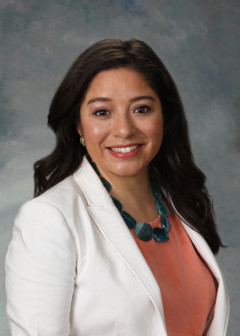HB 290 VIBRANT COMMUNITIES ACT
Sponsored By: Rep Andrea D Romero
Actions: [4] HGEIC/HJC-HGEIC
Scheduled: Not Scheduled
House Bill 290 (HB 290) enacts the Vibrant Communities Act; creates the Vibrant Communities Program; provides public assistance to qualifying entities for the completion of public purpose projects upon appropriations by the legislature; requires the Department of Finance and Administration to administer the program; specifies contractual terms; requires reporting; and provides a contingent effective date.Legislation Overview:
House Bill 290 (HB 290) enacts the Vibrant Communities Act (Act) and creates the Vibrant Communities Program (Program). The legislature finds that without the daily contributions and efforts of the thousands of valuable nonprofit organizations dedicated to serving communities throughout New Mexico, the state would be inundated with constant requests for health, human and social services for which the state does not have revenue or resources to provide. When nonprofit organizations provide facilities and services that the state cannot otherwise provide, the state as well as its residents receive considerable value. As used in the Vibrant Communities Act: A. "department" means the department of finance and administration; B. "health council" means a county, tribal or regional health council; C. "local government" means a county or municipality; D. "municipality" means any incorporated city, town or village; E. "program" means the vibrant communities program; F. "public assistance" means a grant of public funds, a lease of publicly owned real property or any other provision of public funding or assistance that the legislature has appropriated or authorized to complete or facilitate a public purpose project; G. "public purpose" means for the purpose of providing facilities or services for the benefit of the public health, safety or welfare; H. "public purpose project" means a project proposed and performed by a qualifying entity to address a public purpose within the community in which the project would be located; and I. "qualifying entity" means an organization that has demonstrated that it has been granted exemption from the federal income tax by the United States commissioner of internal revenue as an organization described in Section 501(c)(3) or Section 501(c)(12) of the United States Internal Revenue Code of 1986. The Program is created within the Department of Finance and Administration (DFA). The Program is to provide public assistance to facilitate the development and funding of public purpose projects. The DFA must establish rules to carry out the provisions of the Act and to ensure the protection of public funds. Public assistance is to be provided pursuant to the Act and is subject to legislative appropriation and authorization. The DFA may not transfer, adjust or otherwise use money for the Act or Program except as directed by the legislature. Applications for the Program are to be submitted by qualifying entities that are requesting public assistance to finance a public purpose project according to the Act. Required components of applications are detailed. Based on analysis and evaluation of the applications, the DFA must provide to the legislature and the governor a list of proposed public purpose projects. The projects will be differentiated based on the demonstrated need within the community in which the proposed project would be located and the proposed safeguards to ensure responsible use of public assistance. The legislature is to appropriate money for the program by specific purpose and specific amount per public purpose project. Upon legislative appropriation and authorization of a public purpose project, the DFA must enter into and properly manage contracts, provide public assistance to the qualifying entity, enter into agreements with other state agencies and local governments, as necessary, and monitor compliance. Public assistance is to be provided according to the legislative appropriation and the contract entered into between a qualifying entity and the DFA. Requirements of contracts are detailed. Following the performance of the contract, the qualifying entity must terminate the project. Annually, the DFA must submit a report to the governor, the legislature and the Legislative Finance Commttee (LFC) providing details regarding public assistance provided pursuant to the Act. Requirements of the report are detailed. The provisions of this Act become effective upon certification by the Secretary of State that the constitution of New Mexico has been amended as proposed by a joint resolution of the first session of the fifty-seventh legislature, entitled "A joint resolution proposing to repeal and replace article 9, section 14 of the constitution of New Mexico to allow the state, counties, school districts and municipalities to make donations of public funds to private persons or private entities for public purposes and to repeal article 4, section 31 of the constitution of New Mexico, which prohibits appropriations for charitable, educational or other benevolent purposes to a person or entity not under the full control of the state.”Current Law:
Currently, there is no Vibrant Communities Act or Vibrant Communities Program; further, the current constitution of New Mexico prohibits appropriations for charitable, educational or other benevolent purposes to a person or entity not under the full control of the state.
-
Bill Documents arrow_drop_down
-
Commitee Reports & Amendments arrow_drop_down
-
Floor Amendments arrow_drop_down
-
Floor Votes arrow_drop_down
